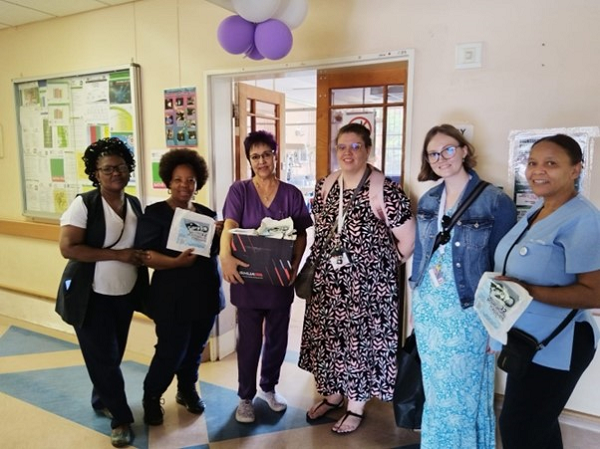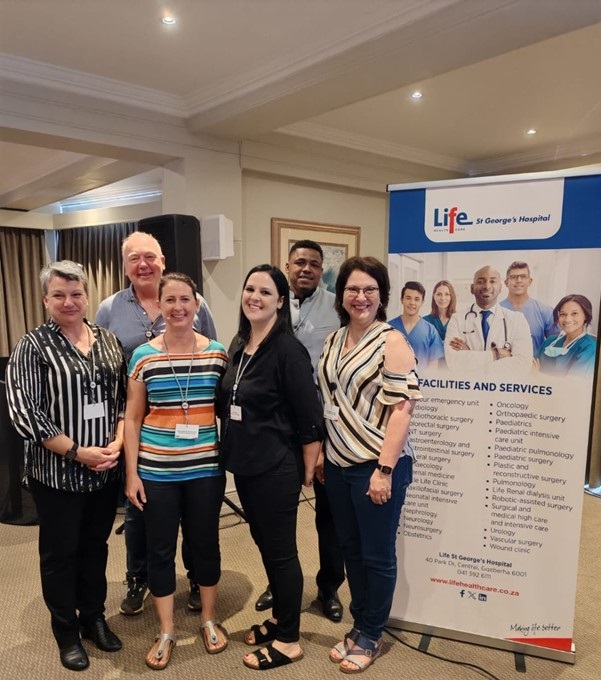World Prematurity Day, observed annually on 17 November, is a global awareness day dedicated to raising awareness about the challenges of preterm birth and the impact it has on families and communities worldwide.
Every year, approximately 15 million babies are born preterm (before 37 weeks of gestation), making preterm birth a leading cause of death in children under five years old. World Prematurity Day aims to highlight the urgent need for action to reduce preterm birth rates and improve care for preterm infants.
The global impact of preterm birth
Preterm birth affects 1 in 10 babies born worldwide, with varying rates across countries. In some regions, the rate of preterm birth is significantly higher due to factors like limited access to healthcare, poor nutrition and high levels of stress. In South Africa, for example, the preterm birth rate is 12,4%. Although survival rates for preterm infants have greatly improved over the past few decades due to advances in medical care, the long-term developmental outcomes for preterm babies often remain a concern.
Preterm birth can be caused by various factors, including maternal health conditions such as pre-eclampsia, infections and multiple pregnancies, as well as lifestyle factors like smoking, malnutrition and stress. In many cases, the cause remains unknown. While medical advances have reduced the mortality rate for preterm babies, they still face significant challenges. Premature infants often require specialised care in neonatal intensive care units (NICUs) to support their development, as their organs – especially the brain and lungs – are not fully developed.
The importance of awareness and advocacy
World Prematurity Day serves as a platform for raising awareness about the causes and consequences of preterm birth, as well as the need for improved healthcare for both mothers and babies. One key goal of the day is to promote better access to quality antenatal care, which can help identify and manage high-risk pregnancies. Public health initiatives also emphasise the importance of lifestyle changes, such as proper nutrition, stress management and avoiding smoking or drug use – all of which can reduce the risk of preterm birth.
In addition, World Prematurity Day advocates better care and support for families with preterm infants. The focus on neonatal care practices like neurodevelopmental supportive care (NDSC) – which reduces stress and promotes development in NICUs – is a critical part of improving outcomes for preterm babies. NDSC emphasises family-centred care, supporting the bond between parents and infants, and adjusting care to meet the individual developmental needs of premature babies.
The role of communities and governments
While much progress has been made, much work remains to be done. On World Prematurity Day, various organisations, healthcare providers and individuals come together to share information, host events and advocate policy changes that can reduce preterm birth rates. Governments, healthcare systems and communities are urged to invest in research, support for mothers and babies and strategies to improve the overall health of pregnant women.
World Prematurity Day is a powerful reminder of the importance of early intervention, medical care and community support in reducing the impact of preterm birth. By raising awareness and fostering a global conversation, this day helps ensure that preterm infants receive the care and attention they need to survive and thrive.
How the NWU contributes
Prof Welma Lubbe, director of the NuMIQ Research Focus Area, is a leading expert on NDSC. Her work spans across South African NICUs and abroad, with involvement in various international organisations working in this field. Prof Lubbe developed the INDeSC project as part of her PhD in Nursing Science. This project aims to implement neurodevelopmental supportive care (INDeSC) in all NICUs across South Africa, and has already successfully started implementation projects in various public and private hospitals. One private hospital group, led by a very dedicated PhD student, has integrated the INDeSC assessment tool into their audit processes. In the public sector, prof Lubbe collaborates locally with both the Potchefstroom and Klerksdorp-Tshepong hospital complexes with the INDeSC study and the PremmieSense parenting education study, which is nearing completion. The next large project is the roll-out in the Chris Hani Baragwanath Academic Hospital (CHBAH), which has large neonatal wards with up to 200 babies who need care at any given time. The CHBAH multi-professional team is a very motivated and creative team, ready to take on the journey to become the flagship hospital for developmental care in Gauteng and wider.
Prof Lubbe is frequently invited as guest speaker to World Prematurity Day events and this year (2024) she had the opportunity to share her knowledge with staff and mothers at the Nelspruit Mediclinic as part of a World Prematurity Day event arranged by the V&A Placement agency. She also collaborates with LIFE St George’s Hospital in Gqeberha and this year presented a talk on “The language of preterm infants” to almost 100 healthcare professionals in the Eastern Cape. Prof Lubbe aims to empower healthcare professionals and parents to improve care and short- and long-term outcomes for preterm infants fighting bravely at the start of their little lives. Prof Lubbe is also the founder and owner of Little Steps, which aims to advocate for preterm infants and ensure the knowledge is shared and parents and healthcare teams are empowered to ensure the best outcome for all.

The PremmieSense research team donates nappies for premature babies to the Potchefstroom hospital NICU.

Presenters at the LIFE St George's Hospital. From left to right are Prof Lizelle van Wyk, Dr Gerg Boden, Samantha Schoncknecht, Sr Anel Beale, Dr Nkululeko Majola and Prof Welma Lubbe.
